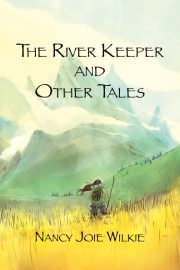Diamond in the Rough: How to Shine in the Slush Pile
A.J. Cunder
As an editor, I’m tempted to say there’s a certain magic when it comes to submissions that catch my eye in the slush pile: an ethereal feeling when the story just clicks, an almost intangible quality to the author’s wordsmithing. But of course, to reduce an editor’s decision to magic (even in the realm of speculative fiction) would underestimate those elements of craft that successful slush pile stories tend to employ, namely a strong opening, complex character development, and powerful prose. Stories that advance through slush exemplify one or all of these techniques.
The power of a strong opening can never be overstated, especially in short fiction. Editors juggle day jobs, families, and myriad other responsibilities, so it’s critical to catch their eye as soon as possible. They need a reason to care about the story, preferably in the first line. In contemporary Anglo-Western publishing, the most successful openings immediately establish setting, main character, and core conflict, giving readers context for the piece (where/when it takes place), whose story it is (the main character), and some sense of where the piece is going (the propelling tension).
When stories in slush don’t provide a clear setting, they’re often declined because of “white room syndrome”: focusing on the action and dialogue without giving readers a clear backdrop. If editors can transplant the entire plot into a “white room” without any substantive change in what happens, chances are the author hasn’t done a great job of establishing their setting. Give some thought to your stage: Think about where the characters are in this story’s world and what makes the place distinct. Then convey details about the setting through character action. How do they interact with their surroundings? Instead of describing a forest purely through exposition, consider showing a character brushing aside pine branches as they hike a mountain trail.
Just as important as setting—perhaps more important—is character. Sometimes stories in slush describe a scene, a world, a war, an empire’s history without naming or introducing a single character. These stories are often declined because, while the premise and background might be intriguing, there’s no personal connection. As humans, we tend to sympathize more with other creatures. We understand pain, desire, joy—and we look for those in our stories.
And yet, even with a character and a setting, there still needs to be some inciting incident, some conflict, or equivalent tension to carry the plot forward. So many stories fail in slush because they don’t properly set up a direction for the piece. That’s not to say the direction can’t change, but it’s important to offer readers some sense of what to expect as the story unfolds, because that’s the hook: People keep reading to see if expectations are met or, better yet, subverted.
After a great opening, the next element of successful stories is often richly developed characterization. Too many stories are declined because of “flat characters” who never face difficult situations or impossible choices. The best way to figure out a character’s true nature is to back them into a corner and force them to make decisions with real consequences. Editors love characters who have to choose between friends and family, success and morality, self and others: Characters who change because of the choices they make. At the end of a story draft, a good question to ask is, What is the main character’s arc? Are they fundamentally different from when the story started (physically, mentally, emotionally)? If they haven’t changed, readers can feel cheated, wondering why the events of this story were so important to tell if they had no impact.
This change can be good or bad, internal or external, but for a story to shine, it needs to exist. Characters don’t have to be perfect. In fact, it’s better if they aren’t. Readers connect with flawed characters. Comments in slush often note characters who are “too good,” or “two-dimensional” who don’t feel realistic. Weaknesses are interesting. They provide opportunities for growth and change.
Lastly, the thread that ties all of this together is the prose, the vehicle by which an author breathes life into their characters and world. The difference between Ferrari and Honda Civic prose can mean the difference between advancing in the slush pile and getting rejected. For me, the quality of the prose is crucial. Even if some technical details still need work (like the opening, character development, or plot), if the prose pulls me in and doesn’t let go, I’ll be more inclined to work with an author on edits. I want to read a story in panoramic 4K ultra high definition rather than pixelated black and white. Consider the difference between The red car drove around the bend and The blood-red Mustang careened around the corner. The first sentence conveys the substance of what happens, but it lacks spark. The second plays with iambic meter, alliteration, and visceral, kinetic language: words that move.
Go overboard, though, and the “purple prose” label comes out. An author should take risks, but thoughtful risks. They shouldn’t use a four-syllable word just because it shows up first in a thesaurus. Each stylistic, linguistic, and syntactic decision should feel purposeful in the context of the story. Consider experimenting with alliteration and internal rhyming, double meaning and wordplay, variations in cadence and rhythm. Most importantly, find your voice and make your prose your own.
Since I started slushing for Cosmic Roots & Eldritch Shores in 2017 (later joining Metaphorosis Magazine and Flash Fiction Online, in addition to starting my own literary journal), I must have considered over a thousand submissions. It’s sometimes difficult to pinpoint exactly why I fall in love with certain stories in slush and pass on others. But if a piece does one or more of the above exceptionally well, it stands a much greater chance of advancing through slush and shining like a diamond in the rough.
 A medievalist, a type-1 diabetic, and a federal criminal investigator, A.J. spends his free time writing, reading, and editing (when not otherwise occupied by his two-year-old husky). He currently serves as Editor-in-Chief of Et Sequitur Magazine, Senior Editor at Flash Fiction Online, Assistant Editor at Cosmic Roots & Eldritch Shores, and part of the staff at Metaphorosis Magazine. Find him on Twitter @aj_cunder, online at www.WrestlingTheDragon.com, or on Coverfly at https://writers.coverfly.com/profile/ajc.
A medievalist, a type-1 diabetic, and a federal criminal investigator, A.J. spends his free time writing, reading, and editing (when not otherwise occupied by his two-year-old husky). He currently serves as Editor-in-Chief of Et Sequitur Magazine, Senior Editor at Flash Fiction Online, Assistant Editor at Cosmic Roots & Eldritch Shores, and part of the staff at Metaphorosis Magazine. Find him on Twitter @aj_cunder, online at www.WrestlingTheDragon.com, or on Coverfly at https://writers.coverfly.com/profile/ajc.


